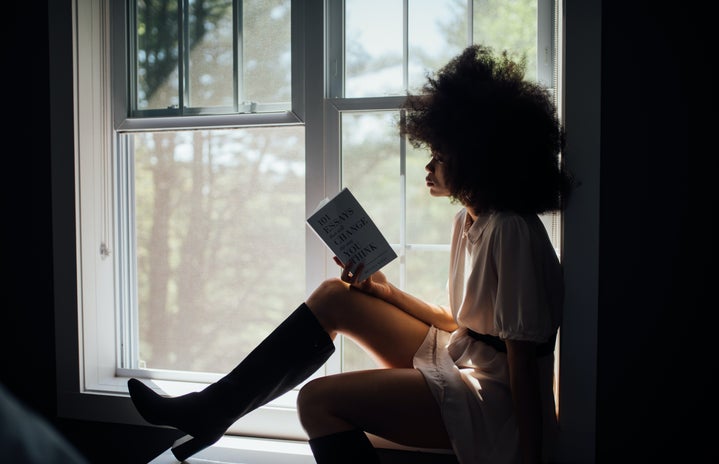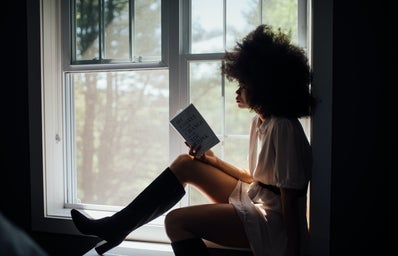I’ve recently had many conversations with friends about reading (a shocking topic for a bunch of bookworms, I know). We were discussing the differences in character voice between female and male authors. Reading a novel about a female protagonist that was written by a woman just hits differently than if the female protagonist was written by a man. I’ve read countless stories about women written by men (The Circle by Dave Eggers or Brooklyn by Colm Toibin, for example), and while the writing is still good, the female protagonists lose their luster a bit. Women know women best, of course. I feel so much more seen and understood when reading strong female characters written by strong female authors. During Women’s History Month (March), I have decided it is only fitting to celebrate my favourite debut novels written by women.
1. Conversations With Friends by Sally Rooney
This book hit me like a freight train, truly. Part of me was destroyed by Sally Rooney’s debut novel Conversations With Friends, and let’s be honest: all bookworms know that the complete and total annihilation we feel when we finish a certain book is the signifier of its greatness.
“Everyone’s always going through something, aren’t they? That’s life, basically. It’s just more and more things to go through.”
― Sally Rooney, Conversations with Friends
I felt that Rooney’s main characters were incredibly relatable: two bisexual college students with an affinity for angsty spoken word poetry. Reducing this novel down to a “coming of age” story seems diminishing for how complex the themes and characters are. Conversations With Friends is strange and real and beautiful in its brokenness; it honours youth and all the pain and pleasure that comes with it.
I have since devoured Rooney’s other books, Beautiful World, Where Are You, Mr. Salary, and Normal People, and have come to the conclusion that Sally Rooney cannot write a bad story.
2. Luster by Raven Leilani
Luster is my current read. I bought it a couple years ago knowing nothing about the book except for the promise of tasteful spiciness laced through the pages. I finally picked it up to read a couple of weeks ago, and it couldn’t have waltzed into my life at a more perfect time, to be honest. Luster opens on Edie, a young Black woman who happens to be in a rather tumultuous period of her life, as most people’s twenties are. Edie has a dead-end job, she’s lost touch with her creativity as a painter, and she always picks the wrong men to f*ck; she really seems to be clawing her way through life. As a reader, I got to know Edie in a very visceral, vulnerable way, with light shining on every dark corner of her thoughts. I was taken aback at just how dark she could go, and even more taken aback at how deeply I could relate to her, as fragile and human as she was.
“It is a foregone conclusion I will once or twice hurt someone’s feelings deeply because of something I say or a face I make, which I will of course think about when I ride the train home, and actually, forever, even though I tried to be merry and keep the conversation light, even though I can’t sleep and I can’t shit, and someone is dying but that one song tells you to slide to the left and you have no choice.”
– Raven Leilani, Luster
Leilani had me hanging on her every word a mere two pages in. There are some paperbacks that I take highlighters to because I don’t want there to be even the slightest chance of forgetting a brilliant line; I need a permanent and deliberate mark on the paper to reflect the mark it left on me. With Luster, let’s just say my highlighter is running dry for all the searing lines I’ve marked so far, and I’m not even halfway through. Needless to say, Raven Leilani has become an auto-buy author for me, and I anticipate the possibility of her next novel in the same way I constantly crave the luster of a hot, buttery croissant: painfully.
There are many other debut novels I could mention, like Arsenic and Adobo by Mia P. Manansala, a cozy murder mystery about a young Filipino woman, Lila, who works at her family’s restaurant that is under threat. Or Butter Honey Pig Bread by Francesca Ekwuyasi, an African diasporic tapestry of interwoven stories of three Nigerian women, Kambirinachi and her twin daughters, Kehinde and Taiye, as they navigate familial relationships, queerness, creativity, and culture. The best books leave permanent marks that are as pretty as they are painful. The common thread all these debut novels share is this: they illustrate the beautiful, messy reality of what it is to be a woman.


